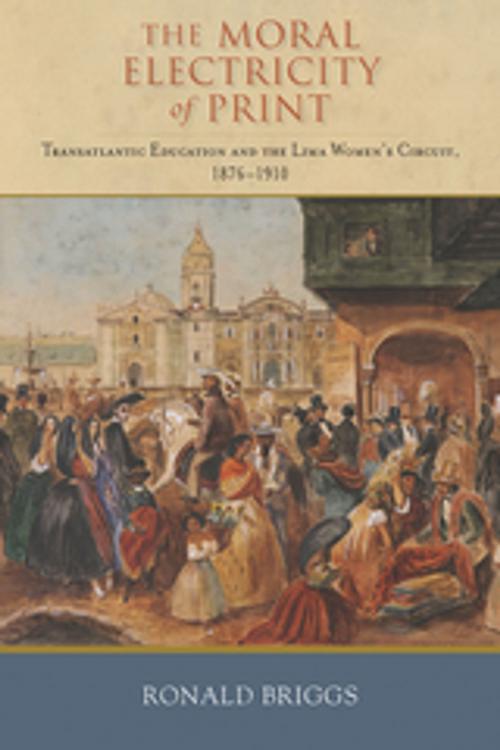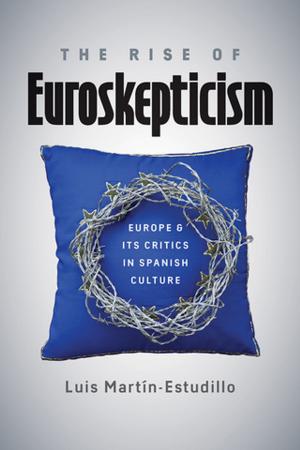The Moral Electricity of Print
Transatlantic Education and the Lima Women's Circuit, 1876-1910
Fiction & Literature, Literary Theory & Criticism, Central & South American, Nonfiction, Reference & Language, Education & Teaching, History, Americas, South America| Author: | Ronald Briggs | ISBN: | 9780826521477 |
| Publisher: | Vanderbilt University Press | Publication: | July 18, 2017 |
| Imprint: | Vanderbilt University Press | Language: | English |
| Author: | Ronald Briggs |
| ISBN: | 9780826521477 |
| Publisher: | Vanderbilt University Press |
| Publication: | July 18, 2017 |
| Imprint: | Vanderbilt University Press |
| Language: | English |
Best Nineteenth-Century Book Award Winner, 2018, Latin American Studies Association Nineteenth-Century Section
Moral electricity—a term coined by American transcendentalists in the 1850s to describe the force of nature that was literacy and education in shaping a greater society. This concept wasn't strictly an American idea, of course, and Ronald Briggs introduces us to one of the greatest examples of this power: the literary scene in Lima, Peru, in the nineteenth century.
As Briggs notes in the introduction to The Moral Electricity of Print, "the ideological glue that holds the American hemisphere together is a hope for the New World as a grand educational project combined with an anxiety about the baleful influence of a politically and morally decadent Old World that dominated literary output through its powerful publishing interests." The very nature of living as a writer and participating in the literary salons of Lima was, by definition, a revolutionary act that gave voice to the formerly colonized and now liberated people. In the actions of this literary community, as men and women worked toward the same educational goals, we see the birth of a truly independent Latin American literature.
Best Nineteenth-Century Book Award Winner, 2018, Latin American Studies Association Nineteenth-Century Section
Moral electricity—a term coined by American transcendentalists in the 1850s to describe the force of nature that was literacy and education in shaping a greater society. This concept wasn't strictly an American idea, of course, and Ronald Briggs introduces us to one of the greatest examples of this power: the literary scene in Lima, Peru, in the nineteenth century.
As Briggs notes in the introduction to The Moral Electricity of Print, "the ideological glue that holds the American hemisphere together is a hope for the New World as a grand educational project combined with an anxiety about the baleful influence of a politically and morally decadent Old World that dominated literary output through its powerful publishing interests." The very nature of living as a writer and participating in the literary salons of Lima was, by definition, a revolutionary act that gave voice to the formerly colonized and now liberated people. In the actions of this literary community, as men and women worked toward the same educational goals, we see the birth of a truly independent Latin American literature.















